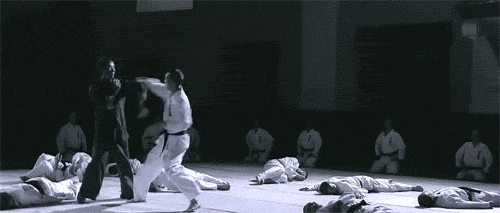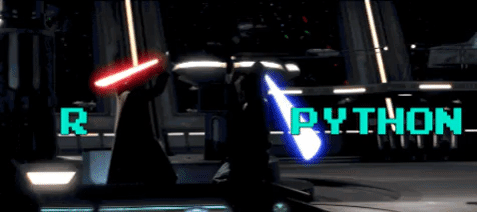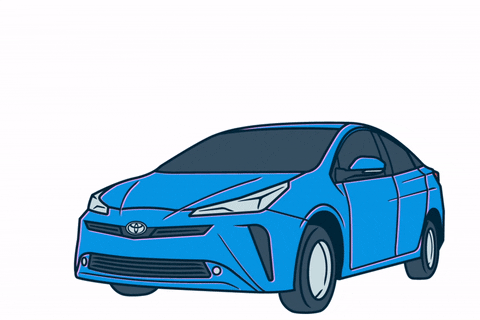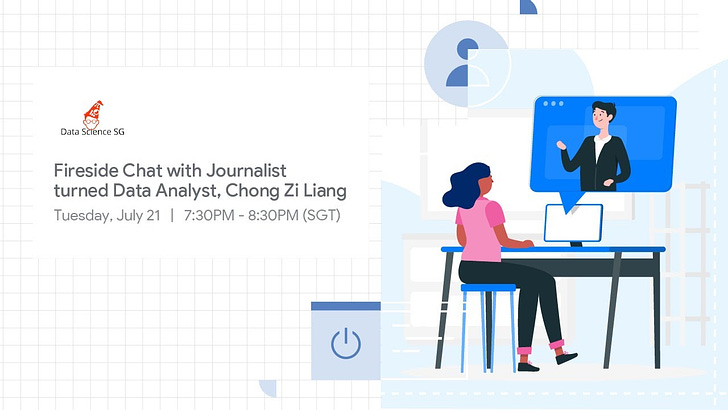Career switch Q & A with DataScience SG
Staying motivated while learning, job hunting challenges, and the state of data analytics
Welcome to Art Science Millennial, a newsletter for non-techies navigating the world of tech! I know the struggle because I’m one of you.
Last week, I spoke about my journey from media professional to rookie data analyst at a virtual event organised by DataScience SG, a community of data enthusiasts in Singapore. The one-hour session was hosted by Google Developers Space, a platform for developers and startups to connect.
Many engaging questions on staying motivated while learning, job hunting challenges, and the state of data analytics came from the audience during my chat with Koo Ping Shung, one of the co-founders of DataScience SG.
Here’s the conversation we had, edited and condensed for clarity.
You can also watch my presentation and the full question-and-answer session here.
Koo: Let’s start with this question: How has the transition to an entirely new scope been so far? Besides scope, any big differences or things that you did not expect?
I was very lucky to have joined a good company, 99.co, which is really open to people like myself — career switchers. And the hiring manager was able to look past my lack of a formal education in data or STEM (science, technology, engineering, mathematics) to hire me based on my interview and technical test.
Things I did not expect: At the start I plunged into the job to show my technical ability in SQL, Tableau, Excel. But two weeks into the job, someone stopped me and said: “Hey, why are you pulling all these data? What are the questions you are trying to answer? Who are you helping with this data and what is that person’s objective?”
I realised that communication and knowing business priorities were super important. And shame on myself, a communications professional, totally forgetting about this aspect of data science. So that really pulled me back a step to not just focus on the technical aspect but communication and knowing the business as well.

Koo: Knowing the business, that’s what we’ve been stressing in the community as well. Where do you see yourself in five years?
Right now I want to learn more about the business, establish myself in this space. I’ve been thinking about either deepening my theoretical understanding of data science, possibly through a master’s programme, so that I can take the further step to becoming a data scientist. Or I could become very well-versed in the business and straddle both the technical and business sides.
Koo: You mentioned that communications skills from your previous career were transferable to data science. Are there other skills you think are transferable too?
As a journalist you have to tell a compelling story to let people know why should they be reading your story in the first place. What’s the “so what?” That’s also key to any data science presentation and frankly, that’s something I still struggle with from time to time. Sometimes I do a presentation and the stakeholder says: “This is all interesting but ‘so what?’ What does this mean for my business, is this going to raise my revenue?”
Koo: We’re getting questions about your hobby — Wing Chun. Have you used any martial arts philosophy to guide your journey?
Be like water! I guess this question came about because of the Wing Chun wooden dummy behind me. One of the things that applies is perseverance. In martial arts you don’t see improvement in a few weeks or even a few months. I still feel like a beginner every time I meet someone who’s more skilled and that’s the same when it comes to learning. You might think, “Wow I’ve met my goal, completed my bootcamp, found a new job.” Then you see someone who is doing so much more and you feel like a beginner all over again.

Koo: You’ve gone through a career transition. Would you advise someone to do the same under current circumstances with the pandemic and economic situation?
With this Covid-19 situation it becomes even more important to have new skills in case you find yourself having to make a sudden switch not out of choice but out of necessity. The key is to expand your options so that even if you think it’s the wrong time for a career transition at least you have the option to do so. As for whether this is the right time, everyone has their own considerations. I have friends who have changed jobs even though the economy is not doing well.
Koo: In retrospect could you have self-learned the skills needed for your role?
Theoretically yes, there are so many online courses you can do cheaply or even for free. But I don’t have any regrets doing the full-time bootcamp as it was a signal of strong intention to employers that I’m really serious about this.
Secondly, it helped to build a network of like-minded individuals, people who were also into adult learning and wanting to make a switch. The network was really important during those months in the wilderness looking for a job. We would exchange tips and talk in our WhatsApp chat group to keep our spirits up.

Unfortunately with the Covid-19 situation, classroom learning might have stopped in a lot of bootcamps. That’s a key question to ask the admissions officer: How would learning be conducted during this time?
Koo: What are some of the online course you suggest taking as a beginner?
I use a lot of SQL at work. Python is all the rage online and it almost seems like coding equals Python now. But I think SQL is underrated as it’s key to querying databases and it often comes up during technical interviews.
I started with not just coding but also an overview of concepts in data science. That really helped when I entered the bootcamp as it was just 12 weeks and they didn’t have time to teach me coding from scratch. If I had joined the course without learning on my own beforehand I would definitely have flunked out.
Koo: I’m curious, how did you learn about machine learning?
I used Udemy and the online courses I did are listed in The Woke Salaryman article I wrote. I claimed most of the fees from SkillsFuture.
Some people say: “SkillsFuture provides just $500, can I really make a career change with that?” And obviously the answer is “no”, because if you think about it — spending $500 on a coach for piano or tennis won’t get you very far in those pursuits. So why should a career change be any different? Use it to spark your interest in something, but you have to go beyond what SkillsFuture can offer.

Koo: Between visualisation tools like Tableau, Qlik Sense, and Power BI, which do you think is better at exploring and explaining data?
There’s no correct answer to this. I would say Tableau because I have most experience with it but somebody who has a different experience will say otherwise. Someone might say Python or nothing!
So be tool agnostic. I was trying to crunch some number using Pandas in Python one day and my boss said: “I’ll show you this little thing called Excel.” He dropped the numbers into the sheet, clicked “summarise with pivot table” and the results I wanted were spat out. I’m not trying to sell Excel but I think the best tool is the one that gets the job done quickest.
Like what you’re reading so far? Sign up so you don’t miss the next update of Art Science Millennial!
Koo: I agree with you on that, it’s never been about the tools but more about how you derive value from data. So is data science a hype? Some are afraid there are too many people rushing into this industry.
It’s definitely getting more competitive, so enter the industry with your eyes open and know the challenges.
But there’s a deeper level to this question and that’s whether companies will stop talking about data in a couple of years. Initially there was a lot of excitement about data because there seemed to be lots of potential with machine learning and artificial intelligence (AI).
An article in The Economist summed up pretty well why companies are struggling to implement AI — they don’t have clean data. Then they realise to get clean data they have to invest so much resources and it’s going to take months or even years to generate the kind of data you need for AI to shine. And after they finally deploy the machine learning model, a few months down the road the data scientist says it’s time to retrain our model with new data. The article says “AI is not a deploy-and-forget” kind of thing and that’s the main challenge that companies are waking up to.
Some companies realise that there are actually many low lying fruits to pick. “Just by using Excel and Tableau I can increase my profits so many times, so why did I bother with AI?” That’s where the disillusionment is coming. If you are in the position to choose your job then knowing what the data gathering processes are at your potential workplace is very fundamental.
Koo: Whatever you shared are things we have been advocating for the longest time so I’m glad to hear it coming from someone else. Let’s talk about how you overcame the steep learning curve while self-learning.
One thing I preach on my newsletter is to get interested in the thing you are learning. If you do a machine learning course just for your resume it’s definitely going to be a pain. But say you learn statistics because you are interested in politics and you want to know more about how opinion polling is done and how reliable polls are. If you start learning from that point of view you stand a much greater chance of retaining your interest and going deeper.
Initially I was really sceptical about online learning, but I realised it suited my schedule so much more. As an adult learner you don’t have the luxury of committing three hours non-stop to learning. Life gets in the way, your job, family commitments. So I was stealing time during my commute to work just to watch 10 minutes of the course rather than just scroll mindlessly through Facebook. During lunch breaks, I would watch some course material too. These little habits were very important to maintaining discipline.

Koo: So do something you’re interested in.
Discover your interest in science too. We shouldn’t think that arts students are interested only in literature and visuals. Actually, the things we are interested in are rooted in science as well and it’s up to us to find that connection.
Koo: What software do you need to be well versed in to make a switch to data analytics?
I mentioned SQL earlier. Lots of job descriptions talk about one of the visualisation softwares. I think it’s less about demonstrating you can hit the ground running on day one, than about showing your thought process behind working with datasets.
I struggled a lot with what to start with. I was reading a lot of articles about whether to learn coding in the first place, and then should I be doing Python or R? You think to yourself: “If I take the plunge I better not waste my time so I better learn something that is applicable right from the start.” I spent so much time trying to figure out the thing that would put me in good stead for the next 20 years. It was only after I started learning coding that I realised new libraries are popping up every couple of months. If you chase that skill with the assumption you don’t need to learn anything else for the next 10 years, you won’t be able to find something that will fit the bill.

Koo: Do you have any prior programming experience? If not, how did you start? Some people are hesitant because they don’t know where to begin.
I had zero programming experience. The first time I wrote “hello world” — probably the first line of code any beginner starts with — was in October 2018. I just decided to try out this course and if I ended up hating it then so be it. There’s no magic formula, unfortunately I don’t have this eureka moment to share as to when it all started making sense.
Koo: Are you still actively taking online course to improve your skills?
I took two Tableau courses a couple of months ago. For SQL, I feel like I’m being put through the wringer with my daily work.
I’ve been putting more effort into writing my newsletter as that sharpens my connection of data science and tech concepts to everyday life. Finding that connection for myself and others is something I’m passionate about.
Koo: Are online courses a prerequisite for the bootcamp you attended?
It’s not, but if I had entered the bootcamp with zero programming knowledge my chances of surviving it would have been very low. Almost immediately you’re given little problems to solve with code and by the third week you’re using machine learning libraries. So if you are still struggling with defining variables or writing the simplest functions then you are at a disadvantage.

Also, you are not deriving the most from the course and you don’t have the ability to ask your instructor more in-depth questions or interact with your course mates on a deeper level. That’s something you should be aiming to get our of your data science course.
Koo: How much do employers emphasise a master’s in data, based on your experience in job market?
Rightly or wrongly, a master’s still signifies a certain level of seriousness and effort that person has put into learning. So definitely it does open doors, although there are some employers who are open to letting you take the technical test even if you don’t have a master’s.
Koo: Do projects help in getting a job?
Yes, and I think employees are less concerned about your projects having very good outcomes such as achieving 95 per cent accuracy in classification. After all, if it’s really that good maybe you should be out there monetising your project instead of interviewing for a job!
The questions I got showed me they were more interested in the thought process behind the project. How I defined the scope, how I went about getting the data set and determining what was relevant gave them a lot more insight into my thought process. And that’s something more discerning interviewers were interested in.
Koo: I’m so glad to hear the two key words: thought process, which we’ve been emphasising. We’re getting one comment that says your story seems to indicate non-STEM people will find it hard to find data jobs. Do you have any advice on whether to increase tech skills or sell “hybrid-ness” in the workplace?
I don’t see hybrid-ness and tech skills as mutually exclusive: increasing tech skills will increase your hybrid-ness. Even if I didn’t make it in finding a data analytics job, I could at least speak to data people using their language and act as the go-between for the business and tech sides. Some of my bootcamp classmates went down this path into business development roles. I took my current route to fully immerse myself in tech and see how far I can go but not everyone wants to do that.

Koo: Going back to the decision between a bootcamp and master’s — what were some of your considerations?
Very practically I was thinking of time and money, a master’s would take more of both. I also spent some time speaking to the recent grads of that bootcamp. They gave me quite a good impression of the course as they were able to find jobs in data related roles and said the bootcamp was worth their while. I went to the campus to speak to an admission officer as well.
Koo: We’re almost out of time, so let’s sum this conversation up. Any parting advice for our audience?
Thinking about a career switch is a great first step. The next step is doing something about it, even if it’s something really small. You don’t have to take the plunge into the deep end immediately, as long as those small steps head towards where you want to go.
I’d love to know what you think of this newsletter and what you’d like me to write about. You can reach me at zi.liang.chong@gmail.com or by leaving a comment if you’re reading this on the Art Science Millennial website. If you enjoyed this piece, sign up so you get subsequent updates in your inbox!
One last note: Art Science Millennial has been running for two months now! After taking into account readership numbers, effort in producing articles, and feedback from some of you, I’ll be adjusting the frequency of updates to at least once every two weeks. This newsletter remains a work in progress and I’ll continue to experiment to provide the most informative and entertaining reading experience I can muster.



